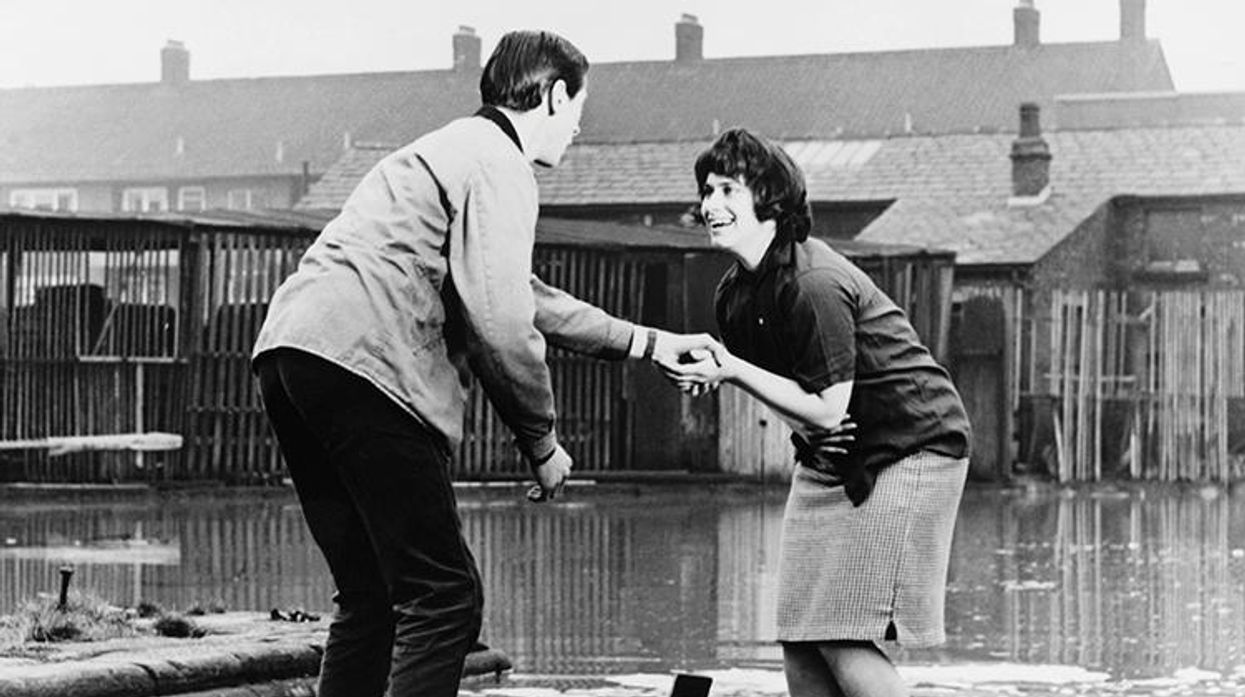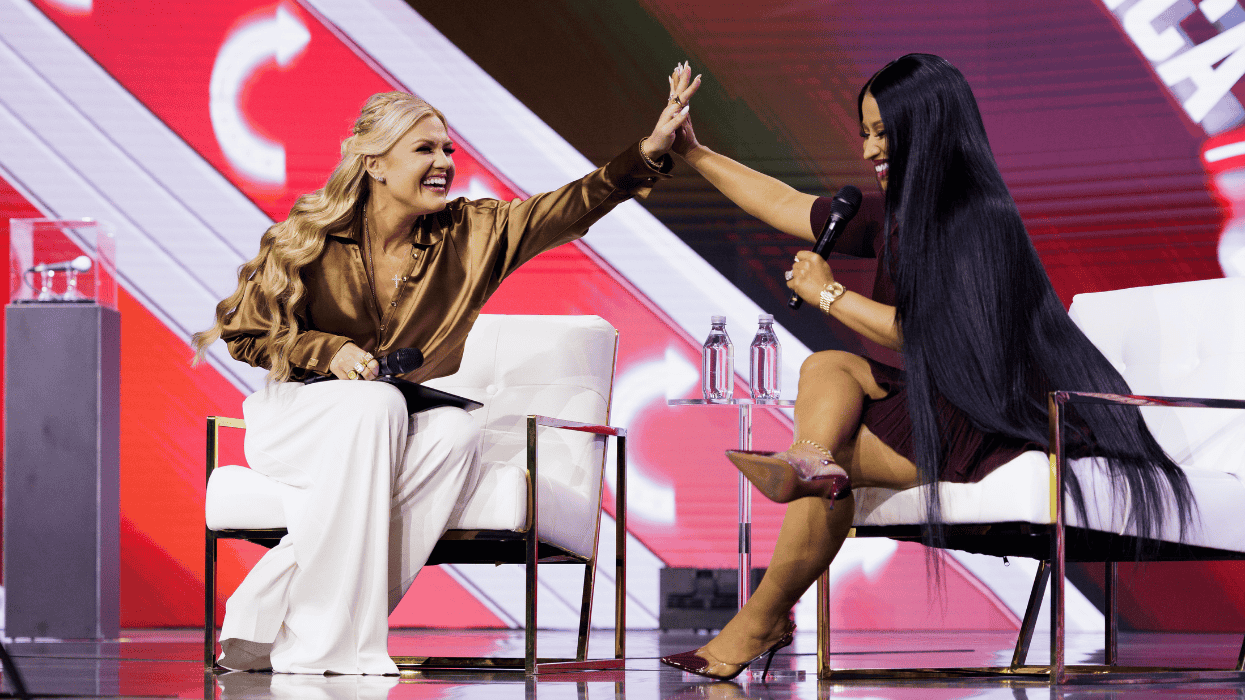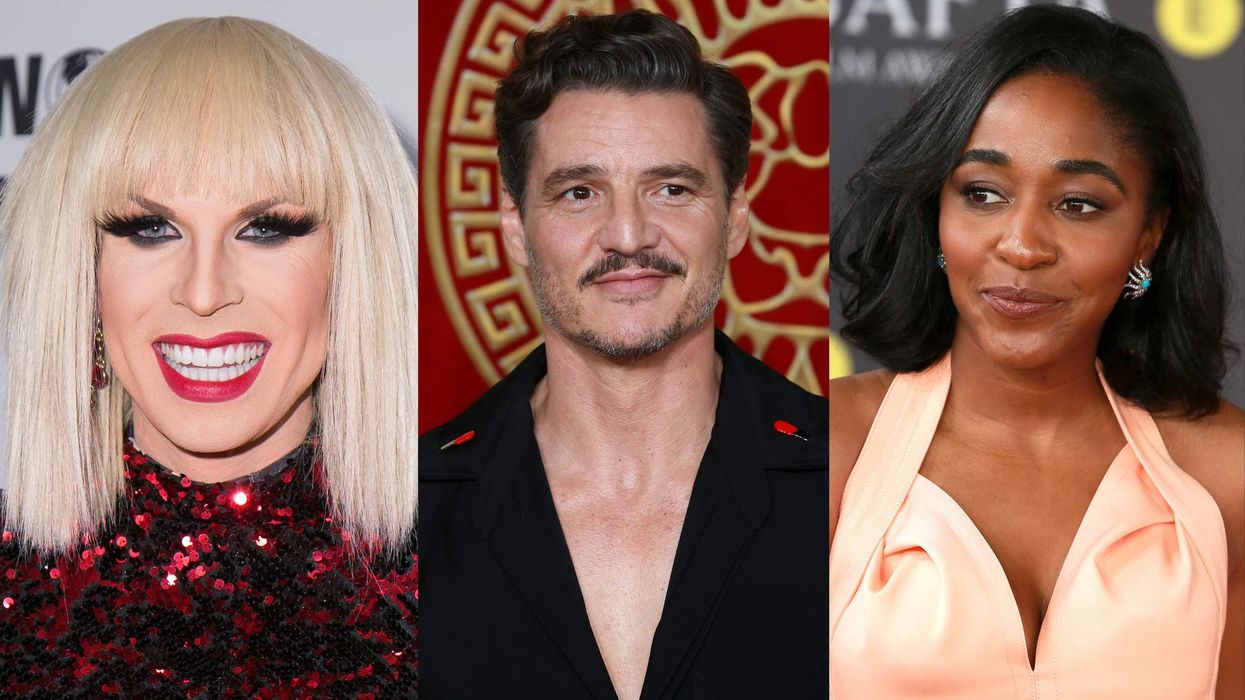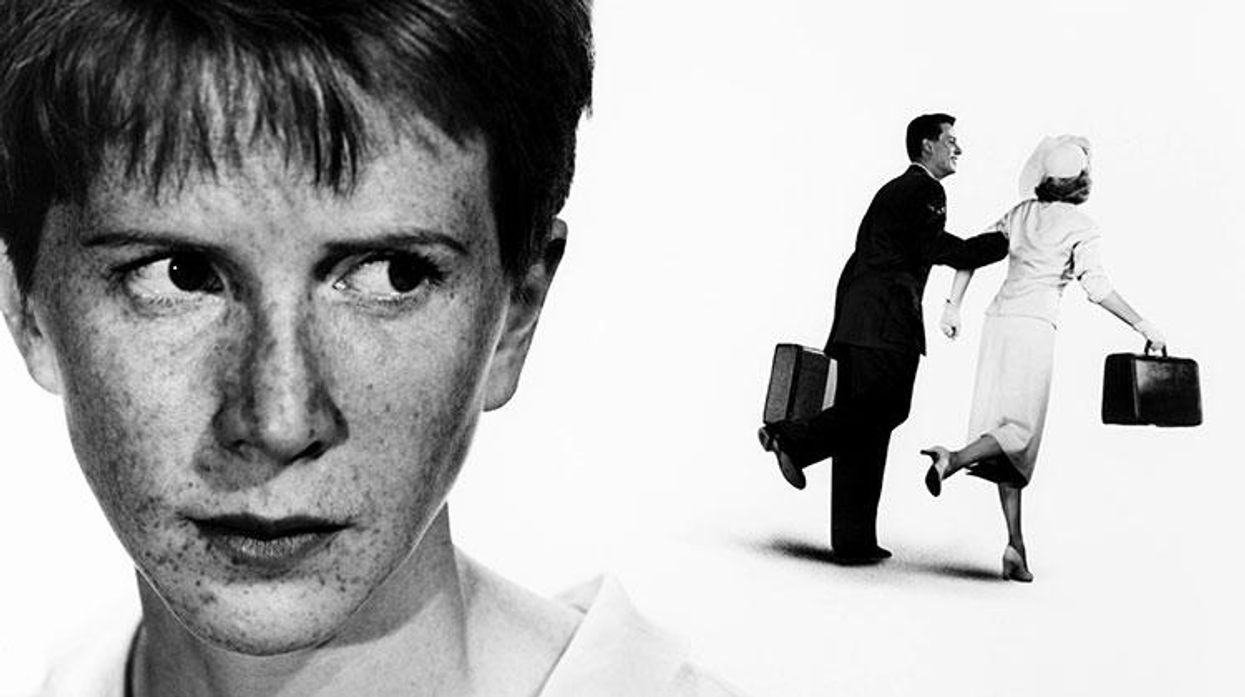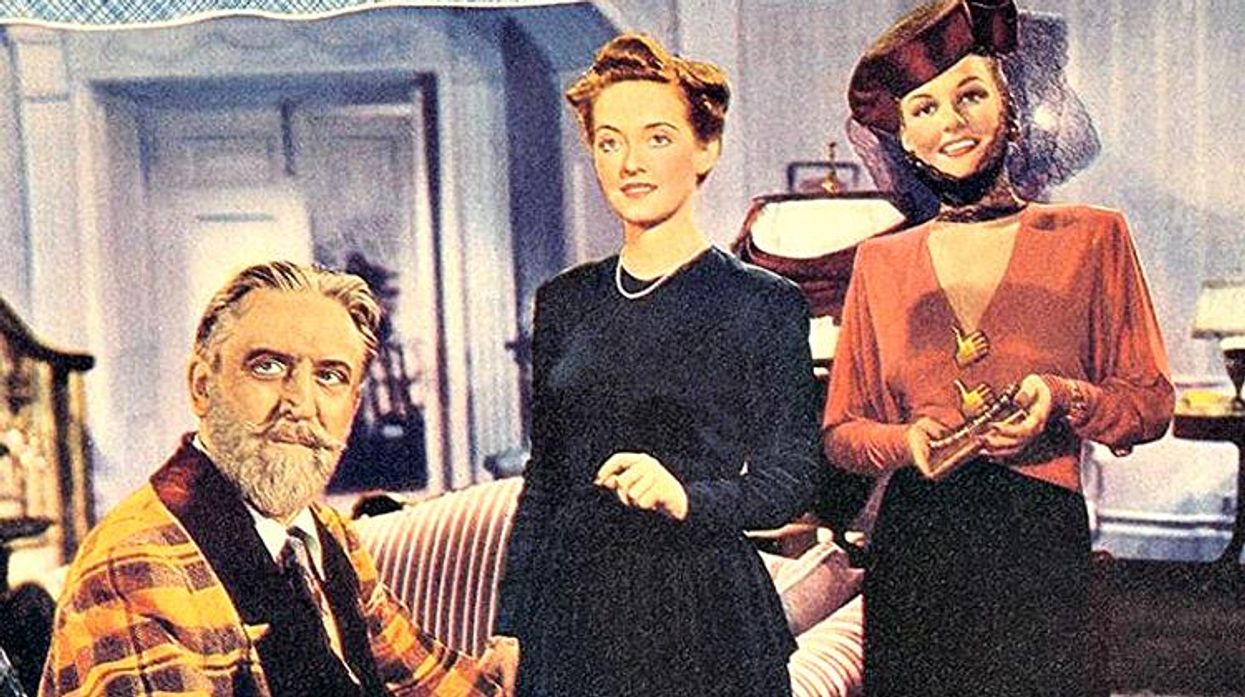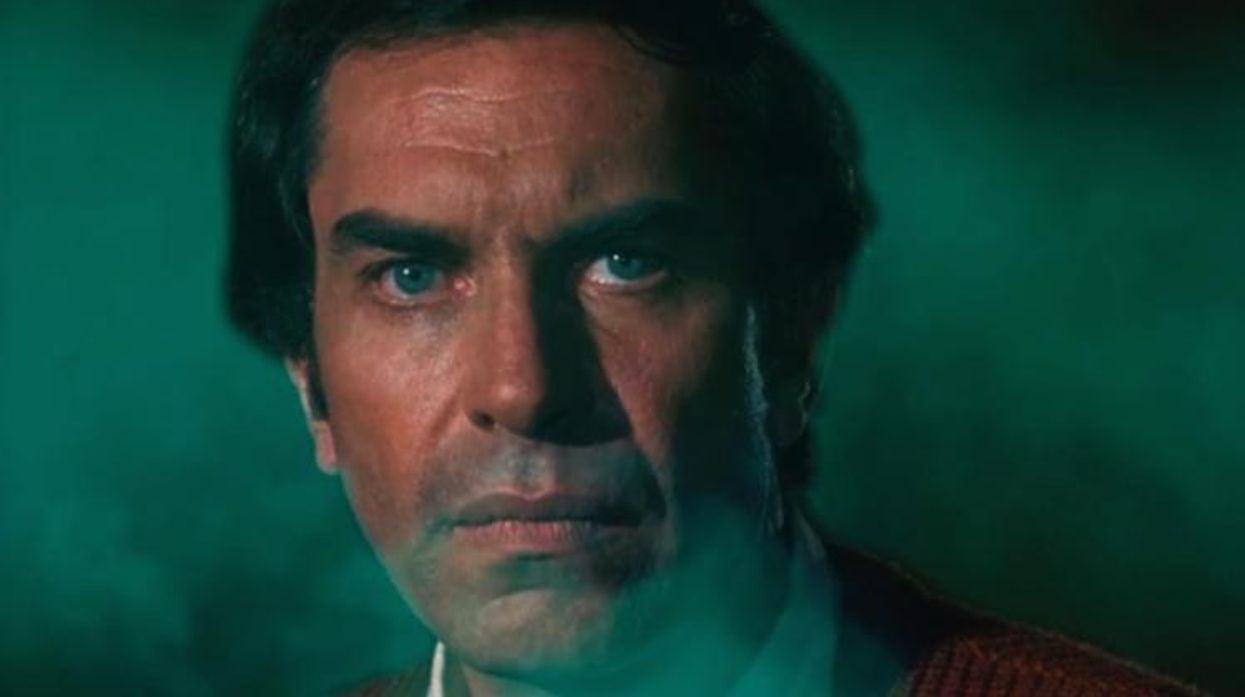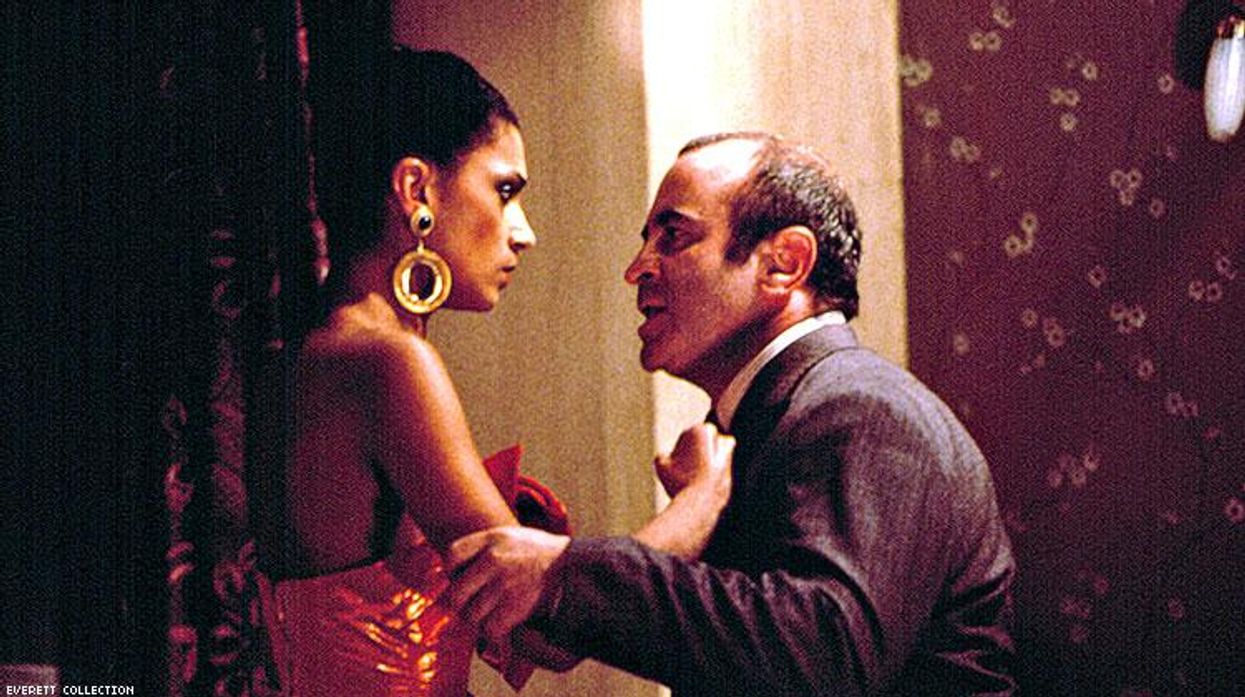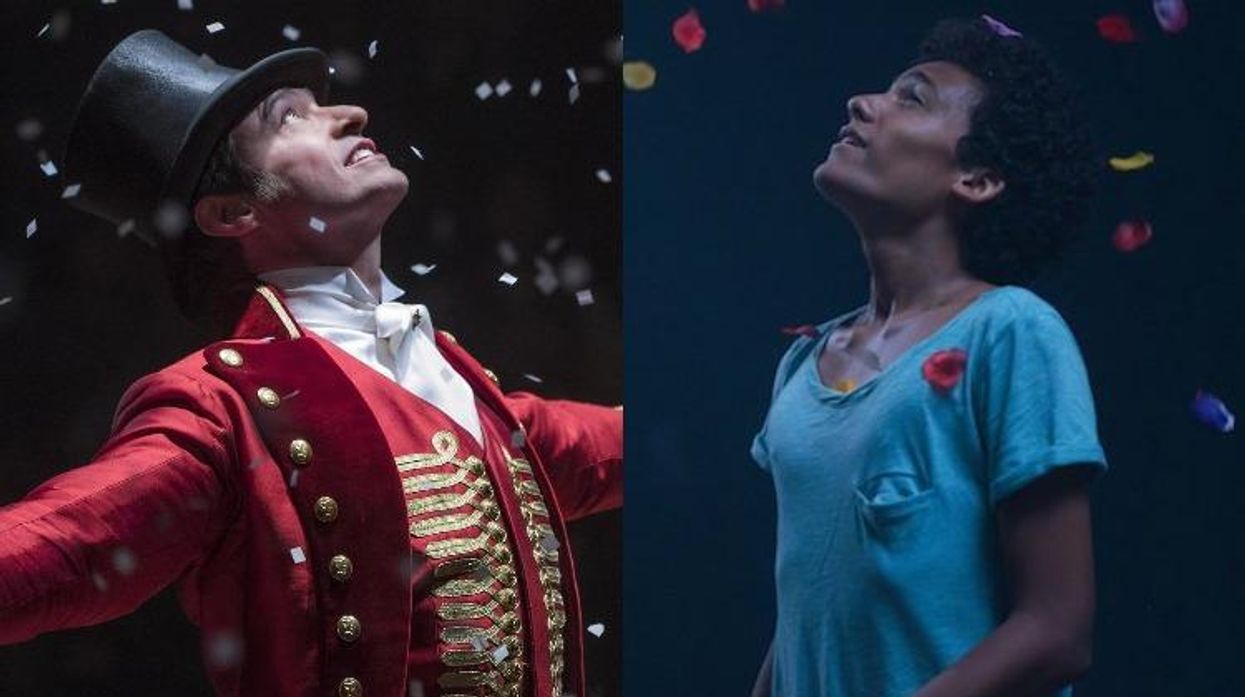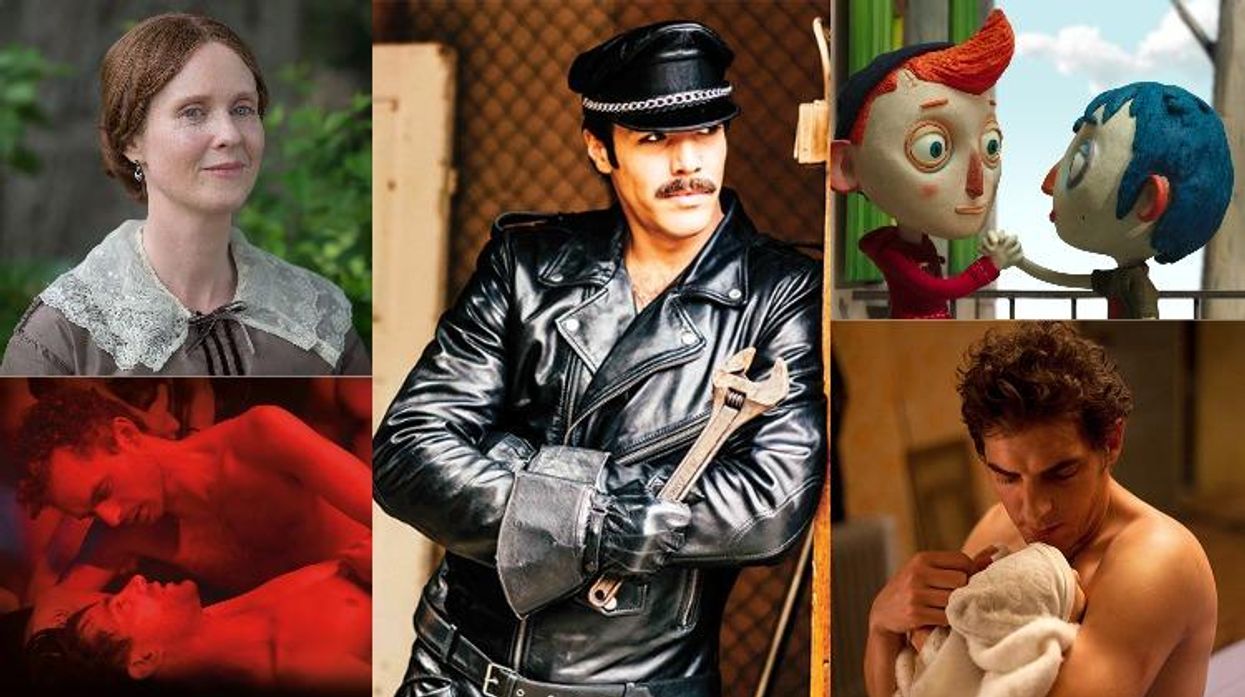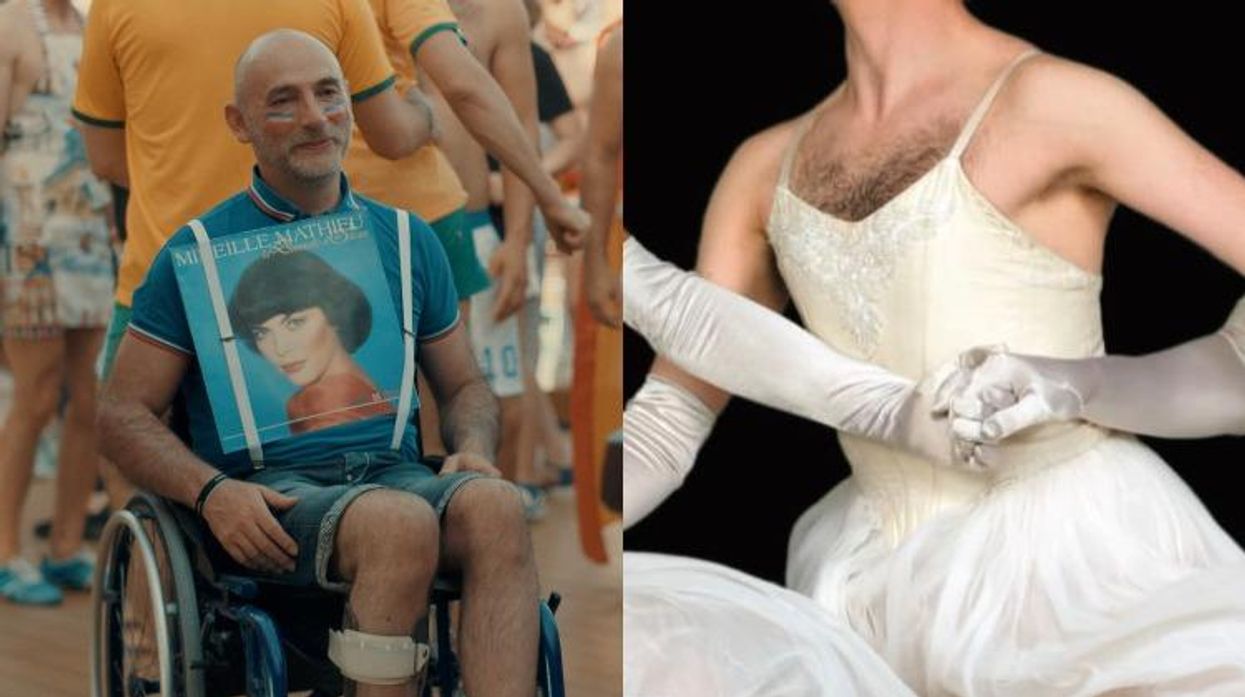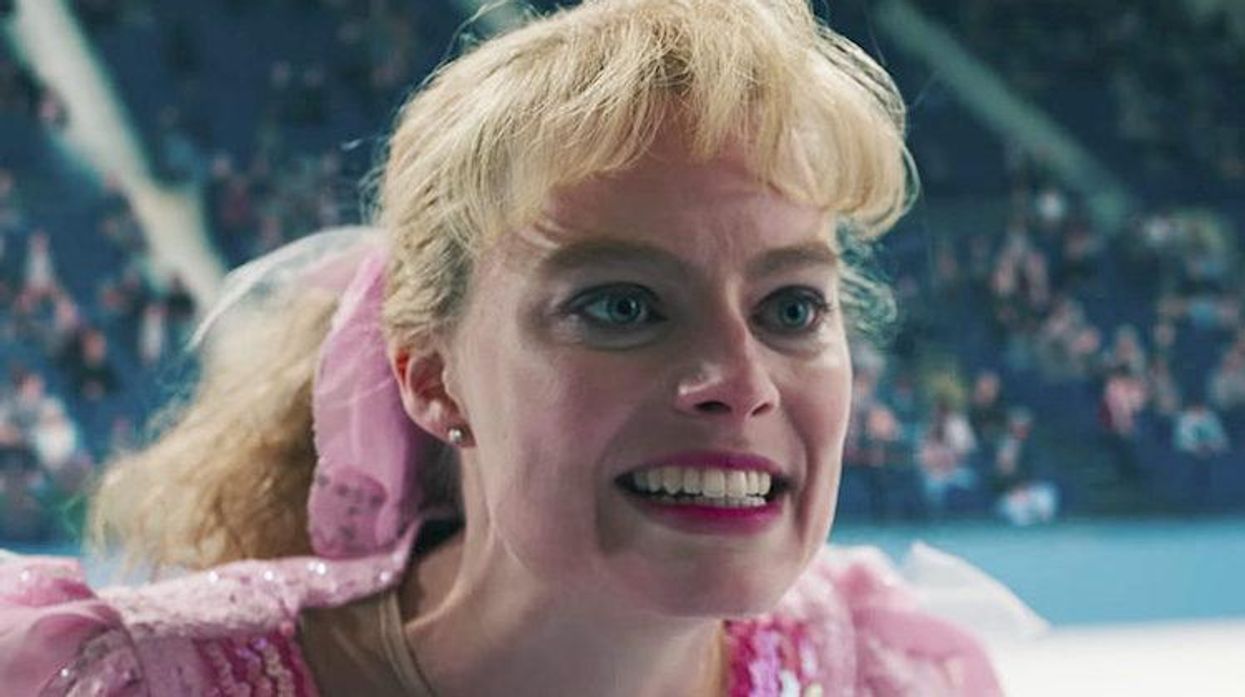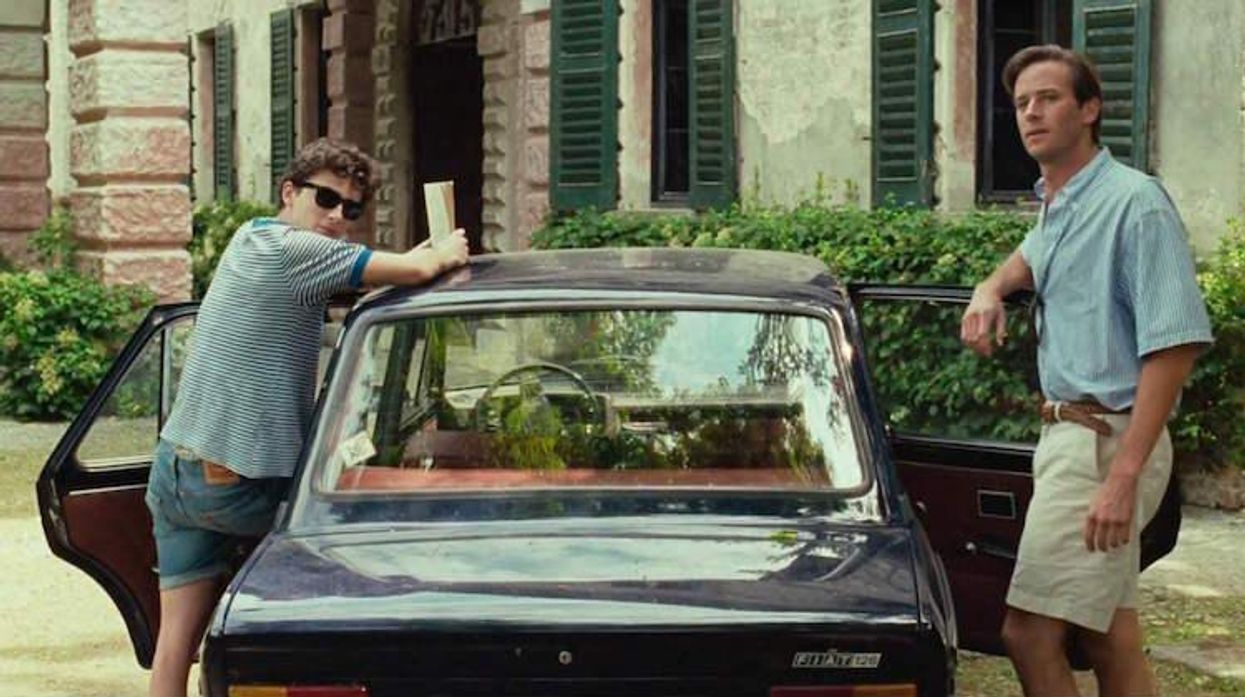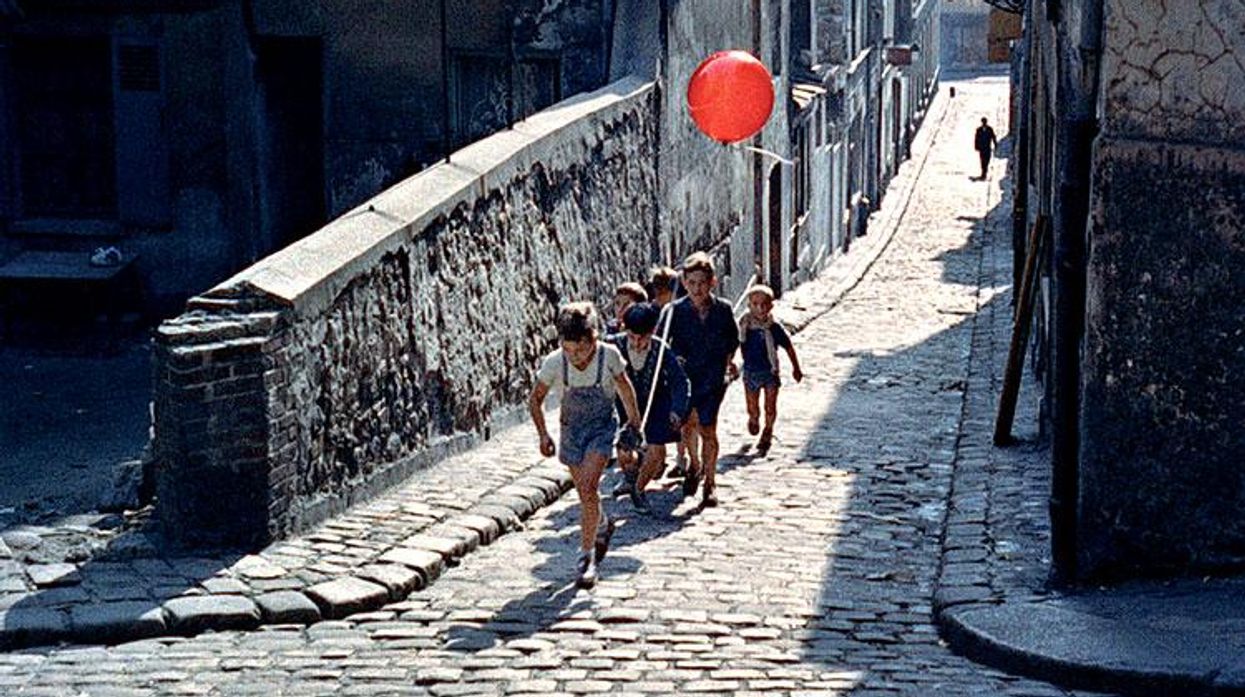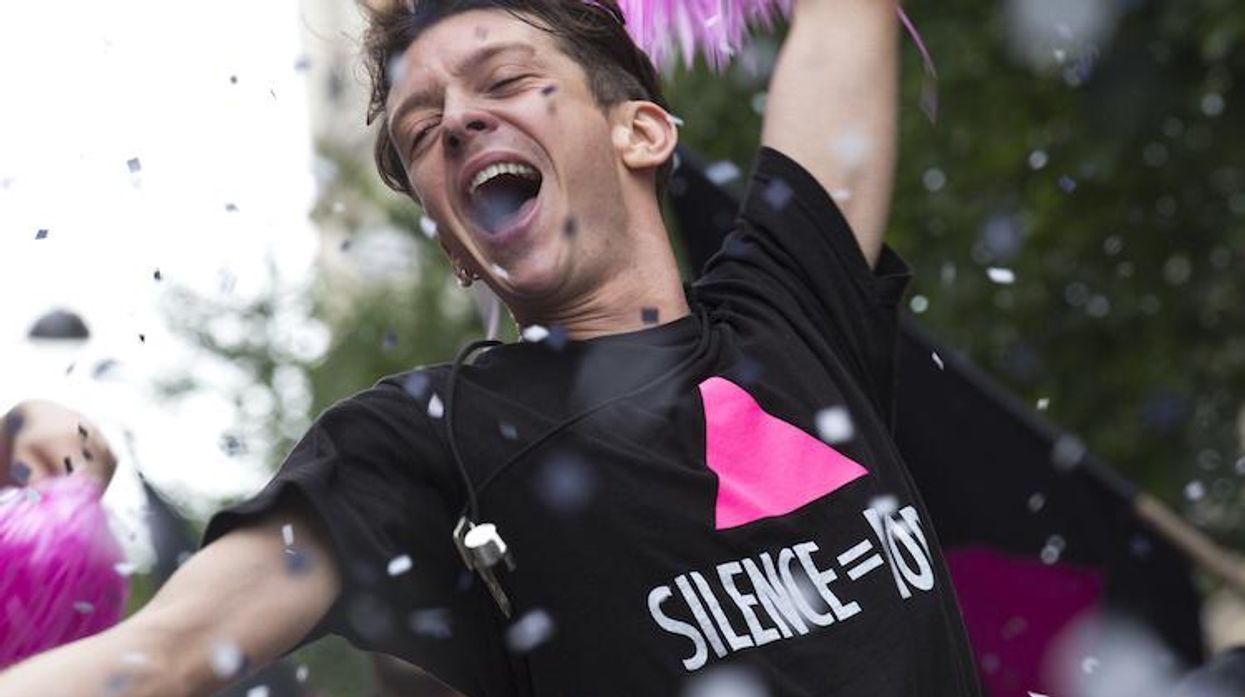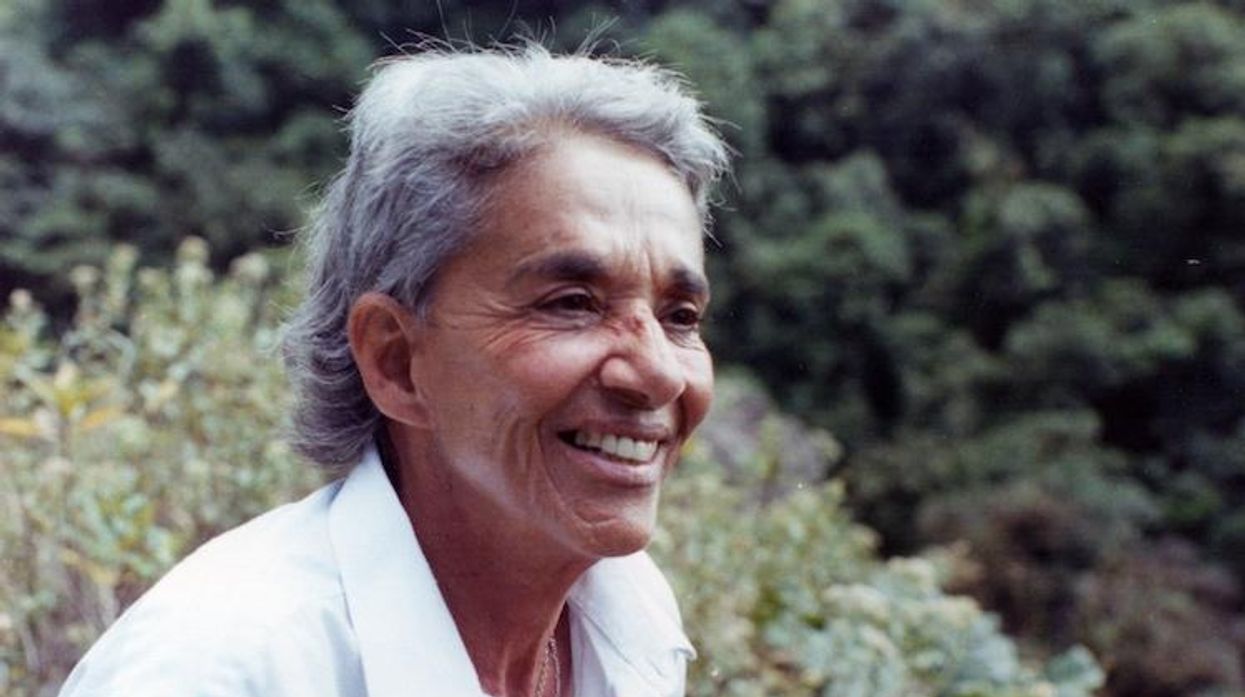Courtesy of Criterion Collection (A Taste of Honey).
In A Taste of Honey, Murray Melvin's Geoff, a homeless gay youth in 1960s Manchester, England, befriends Jo (Rita Tushingham), a pregnant unwed teenager. He enters the story as an odd bird, but he made movie history. Geoff was the first movie character whom baby boomers of the period could immediately identify and relate to as openly queer. His out-front sensitivity should astound millennial viewers, too, courtesy of Criterion's just-released Blu-ray of the classic 1961 film.
Geoff's startling appearance is due to Melvin's oval face, aquiline nose, and penetrating eyes. His Northern diction has an elegance that is recognizable as a voice that is deliberately developed and determined to be heard. His will is what's beautiful about the grim story of A Taste of Honey, a movie about the coming together of outsiders and their need for companionship.
A Taste of Honey is based on a stage play written by 19-year-old Shelagh Delaney, a Manchester girl and theater neophyte (whom Morrissey saluted in the Smiths' song "Sheila Take a Bow"). Her first-timer's youthful approach to sexual difference put the play at the forefront of 1960s social movements by women, gays, and blacks. But the story is emotional more than political. Jo, the white daughter of a prostitute, Helen (Dora Bryan), falls in love with black sailor Jimmy (Paul Danquah). Living on her own in a too-large rented flat (as big as the adult world), she meets Geoff and invites him to move in.
The most deeply felt part of A Taste of Honey is its love story between soul mates -- white, black, female, male, straight, and gay. Delaney doesn't take these social alliances for granted but dramatizes and teases them. "Ah, shut up! We enjoy it," Helen says in the middle of a fight with Jo. And just before Jo goes to bed next to Geoff, she smiles and says to him, "You're just like a big sister to me."
Director Tony Richardson treats Jo's warm expression in a way that redefined modern Britain as a place where previously marginalized people were given social recognition. Richardson (who was bisexual and the first husband of Vanessa Redgrave) was a leading figure of England's new movement of "kitchen sink" cinema, combining theatrical tradition with semi-documentary realism. His stark images also are dramatically enhanced -- especially through his attention to actors. Tushingham's wide-eyed, tomboy toughness became an emblem of insolent, pre-Beatles youth. Bryan makes Helen an entertaining broad and tart-tongued realist, while Danquah's Jimmy recalls gay singer Johnny Mathis's romanticism -- he's an ideal of fleeting compassion in a fractured society.
But it is Geoff who centers the film's theme. He endures the social restriction faced by homosexuals of that time. Discreet in public, he and Jo are privately open -- simpatico. They both reject the traditional social roles assigned to women and men. (Tushingham and Melvin won Best Acting prizes at the 1961 Cannes Film Festival.) Geoff's marriage proposal to Jo reveals his urge for tenderness and his need to belong that immediately recalls Carson McCullers's The Member of the Wedding, an earlier gay landmark about fitting in. Morrissey also took on this subject when using A Taste of Honey as a source for the lyrics of the Smiths' "This Night Has Opened My Eyes." When Jo is advised, "Decide for yourself whether you're mad or not," it is classic gay wisdom.
Not a caricature like the queers whom Franklin Pangborn and Grady Sutton were confined to playing in Hollywood movies, Melvin's character presented a type who is authentic to the film's enlightened sense of modern England. His resemblance to eccentric British poet Edith Sitwell is perfectly suited for A Taste of Honey's poetic vision of queer longing.
Melvin's Geoff is an achingly believable character, heroic for his time -- and ours, too. We owe a debt of gratitude.
Like what you see here? Subscribe and be the first to receive the latest issue of Out. Subscribe to print here and receive a complimentary digital subscription.


